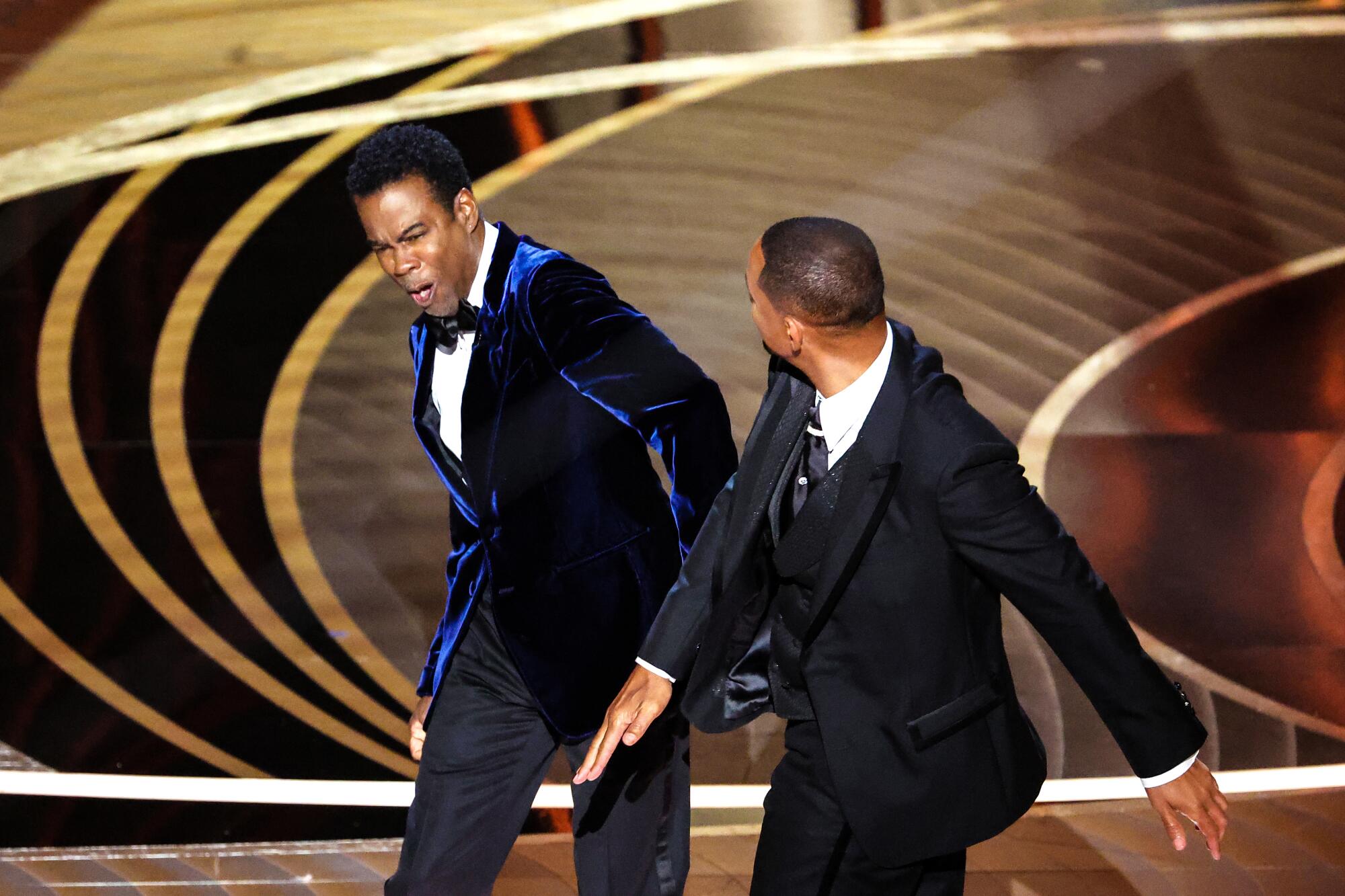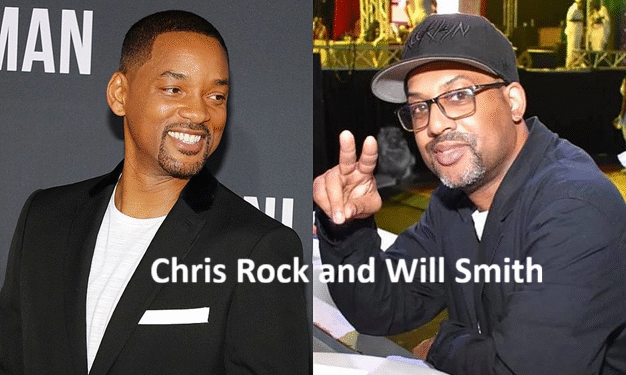Few moments in modern pop culture have ignited as much shock, debate, and reflection as the incident between Chris Rock and Will Smith at the 2022 Oscars. What began as a glamorous night celebrating the best in film took an unexpected turn when a lighthearted joke turned into a physical confrontation that the world still talks about today. But beyond the memes, reactions, and media frenzy, this moment revealed something deeper about fame, emotions, and the fine line between comedy and sensitivity.
Let’s unpack what really happened, what it meant for both men, and how it changed the entertainment world forever.
The Moment That Stopped the Oscars Cold
The 94th Academy Awards were supposed to be a night of elegance, recognition, and celebration. Will Smith, nominated for his powerful role in King Richard, was one of the evening’s biggest stars. Meanwhile, comedian Chris Rock and Will Smith took the stage to present an award, bringing his signature humor and energy. Then came that joke.
Chris Rock and Will Smith made a reference to Jada Pinkett Smith’s shaved head, comparing her to G.I. Jane. What seemed like a typical roast-style joke instantly struck a nerve. Within seconds, Chris Rock and Will Smith walked onto the stage and delivered a slap that stunned the audience — and the world watching live. The entire exchange, followed by Smith’s now-infamous words, “Keep my wife’s name out your [expletive] mouth,” became one of the most replayed clips in television history.
That moment was surreal. Viewers weren’t sure if it was scripted or spontaneous. But as the tension in the room became clear, so did the reality — this wasn’t a comedy skit. It was real, raw, and unfiltered emotion.
Why Will Smith Snapped: More Than Just a Joke

To understand why Chris Rock and Will Smith reacted the way he did, we need to look beyond that single moment. Smith has always been known as Hollywood’s nice guy — charming, funny, and relentlessly positive. But beneath that image was a man who had spent decades trying to maintain perfection under immense pressure.
Jada Pinkett Smith’s struggle with alopecia — a condition that causes hair loss — had been public knowledge for some time. The joke, though seemingly light-hearted in tone, touched a sensitive personal issue. It wasn’t just about hair; it was about vulnerability, insecurity, and pain. For Chris Rock and Will Smith, it might have felt like yet another jab at his family’s private struggles, which had already been under heavy media scrutiny.
Many psychologists and public figures later speculated that the slap wasn’t only about the joke — it was a culmination of years of bottled-up frustration. Smith had been dealing with personal revelations, public criticism, and a changing relationship dynamic with Jada. In that split second, he reacted not as a Hollywood star, but as a husband defending his partner’s dignity.
It doesn’t excuse the behavior — but it does help explain the explosion of emotion that night.
Chris Rock’s Perspective: The Comedian Caught in the Crossfire
For Chris Rock and Will Smith, the moment was equally shocking — perhaps even more so. Known for pushing boundaries and telling hard truths through humor, Rock has built his career on fearless commentary. When he cracked the G.I. Jane joke, it likely wasn’t meant to wound. It was, in his mind, just another jab in the long tradition of roasting at award shows.
But comedy has always walked a fine line. What’s funny to one person can be deeply hurtful to another. Rock’s expression after the slap said it all — confusion, disbelief, and professionalism all at once. Despite the physical hit and the chaos, he continued with the show, earning respect from many for keeping his composure.
In the weeks following, Chris Rock and Will Smith chose silence. He didn’t rush to interviews or social media. Instead, he addressed the incident months later through his stand-up specials, where he tackled it in his own comedic language. His eventual response — full of humor, perspective, and honesty — reminded everyone that comedians process pain through laughter. For Rock, it became another chapter in his legacy of turning real-life experiences into powerful storytelling.
The Public Fallout: Reactions, Backlash, and Reflection
Once the Oscars ended, the internet exploded. Social media platforms were flooded with memes, hot takes, and emotional commentary. Some supported Chris Rock and Will Smith, arguing that he was standing up for his wife against public humiliation. Others condemned his actions, labeling them as unprofessional and unacceptable, especially on such a prestigious stage.
The Academy quickly announced an investigation, and Smith eventually resigned from the Academy before being banned from attending the Oscars for ten years. It was a heavy consequence for one moment of poor judgment — but one that also sparked an important global conversation.
The incident reignited debates about violence versus comedy, masculinity versus control, and privacy versus celebrity. It forced both Hollywood and its audience to confront uncomfortable questions about what we expect from entertainers — and where we draw the line between performance and humanity.
Redemption and Healing: Will Smith’s Public Apology and Comeback
In the aftermath, Chris Rock and Will Smith publicly apologized multiple times — first in writing, then in an emotional video where he addressed Chris Rock and Will Smith directly. He acknowledged that his behavior was “unacceptable and inexcusable,” expressing deep remorse for overshadowing the accomplishments of others that night.
His honesty struck a chord with many fans. Smith admitted that he was on a personal journey of healing and self-discovery, and over time, he began to rebuild his reputation. His later projects, interviews, and social media appearances showed a man more reflective, grounded, and humble than before.
Hollywood loves a redemption arc — and Chris Rock and Will Smith story became exactly that. Slowly, he’s been regaining trust, not just as an actor but as a person who made a human mistake in front of millions. It’s a reminder that even icons are fallible — and that accountability can lead to growth.
Chris Rock’s Triumph: Turning Pain into Power
Chris Rock and Will Smith, on the other hand, transformed the situation into one of the biggest comedy moments of his career. His 2023 Netflix special, Selective Outrage, addressed the slap directly — and unapologetically. He used humor, irony, and brutal honesty to dissect the event, his feelings, and the cultural conversations that followed.
It was classic Rock — sharp, insightful, and fearless. He didn’t portray himself as a victim but rather as a man who took a hit, literally and figuratively, and turned it into art. That’s what true comedians do: they find light in darkness and meaning in madness.
His handling of the situation only strengthened his image as one of the most resilient and intelligent voices in comedy. While others might have sought revenge or pity, Rock chose laughter — and that choice resonated deeply with audiences.
The Larger Message: What We Learned From “The Slap”
Beyond the drama, the Chris Rock and Will Smith incident opened a dialogue about emotional regulation, respect, and accountability in public life. It showed how quickly reputations can shift and how a single moment can redefine even the most beloved figures.
It also forced society to rethink comedy’s role. Should jokes be censored for sensitivity, or should comedians have full creative freedom? The answer lies somewhere in between — in empathy and context. Humor can challenge, but it should never intentionally demean.
At the same time, it humanized celebrities. Both men, despite their fame and success, showed raw emotion and vulnerability in different ways. The world witnessed not just a scandal, but a mirror — reflecting our own struggles with anger, ego, and forgiveness.
Moving Forward: Two Legends, One Defining Moment
Today, both Chris Rock and Will Smith continue their careers, stronger and wiser from the experience. Chris Rock and Will Smith has returned to acting with renewed focus, while Chris continues to dominate comedy stages worldwide. Time, as it always does, has softened the edges of the event, allowing perspective to take over shock.
Their story isn’t about a slap anymore — it’s about growth, understanding, and the complicated beauty of being human. In a world quick to cancel and condemn, both men showed that it’s possible to fall, learn, and rise again.
Final Thoughts
The clash between Chris Rock and Will Smith wasn’t just entertainment gossip — it was a cultural moment that challenged the way we think about emotions, fame, and forgiveness. It reminded us that no matter how successful or polished someone appears, everyone has a breaking point.
More importantly, it showed that redemption is possible when we face our mistakes with honesty and humility. Years later, “the slap heard around the world” remains unforgettable — not for the violence it represented, but for the humanity it revealed.


















































































